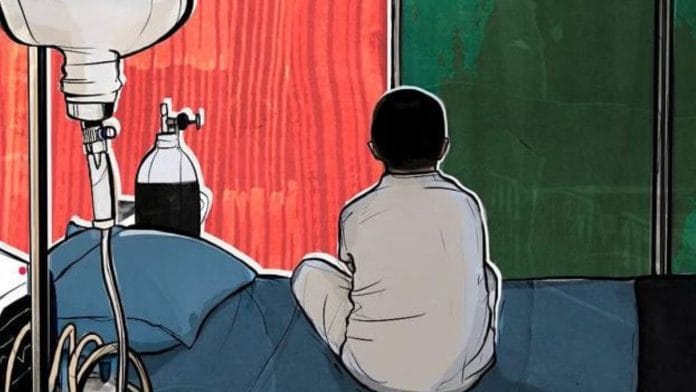Chandrapur (Maharashtra): An India-made, low-cost, point of care (POC) test to detect certain life-threatening blood related genetic disorders including Hemophilia that enables even rural health centres to easily diagnose the conditions could soon be deployed the world over.
The simple POC test developed by the Indian Council for Medical Research—National Institute of Immunohaematology (ICMR-NIIH)—costs just Rs 582 per patient, while the lab-based tests cost over four times that, institute director Dr Manisha R. Madkaikar said.
The POC test for Hemophilia A and Von Willebrand Disease, two serious inherited bleeding disorders, was mainly developed for India, where many with these conditions go undiagnosed because testing has been expensive and only available at a few specialised hospitals, explained the senior scientist.
“But now the World Federation for Hemophilia has also shown interest in procuring these tests for deployment in countries where the disease is prevalent,” Madkaikar who also heads the ICMR—Centre for Research, Management and Control of Haemoglobinopathies (ICMR-CRMCH)—said Friday.
The World Federation for Hemophilia is an international not for profit organisation that works to aid treatment and other support for Hemophilia and some other genetic blood disorders.
It has been estimated that in the Indian context alone, using this kit could help detect over 83,000 undiagnosed cases of the condition in the initial phase itself.
It would save the health system about Rs 42 crore, which is three times cheaper than the current method, authorities at the research institute shared.
It is estimated that there are 1.4 lakh Hemophilia patients in India, the second highest globally after Brazil. Most patients in India have Hemophilia A.
Hemophilia is a rare genetic disorder where the blood doesn’t clot properly due to a deficiency in clotting factors. This leads to prolonged bleeding after injuries, easy bruising, and an increased risk of internal bleeding, particularly in joints and the brain.
The M(VWD), on the other hand, is a more common inherited bleeding disorder caused by a deficiency or malfunction of the Von Willebrand factor (VWF), a protein crucial for blood clotting. This results in prolonged bleeding after injury or surgery, and excessive bruising and it is estimated that nearly 1.4 crore Indians have this condition.
The technology for the POC test for these conditions was transferred to Bengaluru based biotechnology firm Bhat Biotech which commercialised it under the brand name Bio-Scan in August, 2023.
Dr Madkaikar said that the test has made it possible to detect these life threatening but mostly unrecognised conditions even at primary health centres across India taking the test closer to people who need it the most.
Why the kit matters
The test, developed by the ICMR-NIIH, is a rapid, visual card test used to detect Factor VIII (FVIII) antigen in human plasma, crucial for blood clotting, specifically for diagnosing Hemophilia A and VMD.
This test is immunochromatographic-based, providing results within minutes without the need for specialised equipment.
“As such it is valuable for quickly identifying potential cases of Hemophilia A, particularly in resource-limited settings or for screening individuals with bleeding symptoms. It is for this reason that a large number of developing and under developed countries can benefit from using the testing kit,” Dr Madkaikar also said.
By using these POC kits at PHCs and other local health centers, India can find and treat bleeding disorders early, improve patient outcomes, and cut healthcare costs dramatically, he also said.
“This is a major step toward improving care for one of the country’s most neglected health issues,” Dr Madkaikar stressed.
(Edited by Viny Mishra)
Also read: ‘Bloodbath childhood’ is what I got in India. Haemophilia needs Modi govt’s attention






